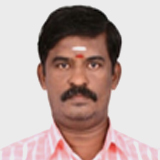MECHANICAL ENGINEERING
The Department of Mechanical Engineering was started in the year 2012 and has highly qualified, dedicated teaching faculty who provide in-depth knowledge and training in the field of Mechanical engineering covering thermal, manufacturing and design aspects to give exposure regarding the latest research, development and techniques taking place in the mechanical field, catering to the growing needs of the industries.
INFRASTRUCTURE
The department laboratories have modern equipmentand machines as per the requirement of the syllabus of Anna University, Chennai.Students are encouraged to enrich their knowledge by utilizing the facilities and resources of the department.In all the laboratories and workshops, skilled technical professionals are available at all timesto train the students.
ENGINEERING PRACTICES LABORATORY
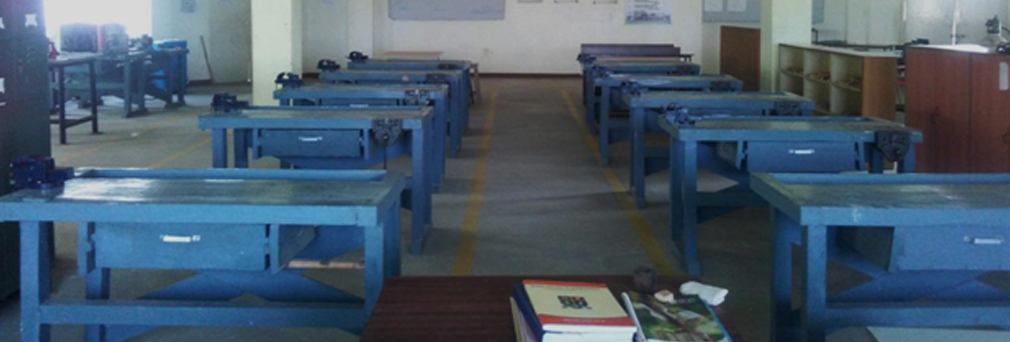
Students learn how to prepare the mould, the method of melting the metal and pouring it into the mould etc. They become familiar with the tools used in foundry shop, casting allowances, casting defects and methods of eradicating the defects. The process of joining similar and dissimilar metals is studied in the welding shop and students gain practical working experience in arc welding, gas welding, gas cutting, soldering and brazing techniques. Students are given training on plumbing work and electrical wiring, and wood working in carpentry shop
MANUFACTURING TECHNOLOGY LABORATORY
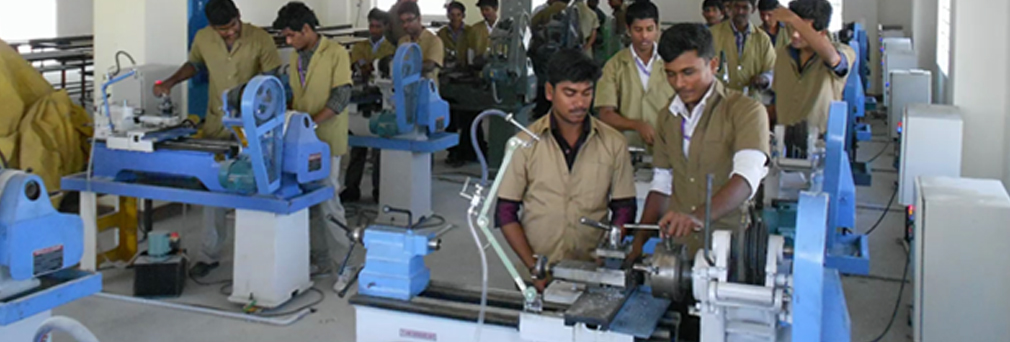
Working on a lathe is one of the major requirements of a mechanical engineer. Students become skilled at lathe operations by performing turning, facing, thread cutting, knurling, chamfering, axial drilling, eccentric turning, step turning and taper turning, using various tools. The major equipment in this lab include CentreLathes and specialised machines for HorizontalMilling, Shaping, SurfaceGrinding, CylindricalGrinding, RadialDrilling, GearHobbling and Center-lessgrinding.
FLUID MECHANICS AND MACHINERY LABORATORY
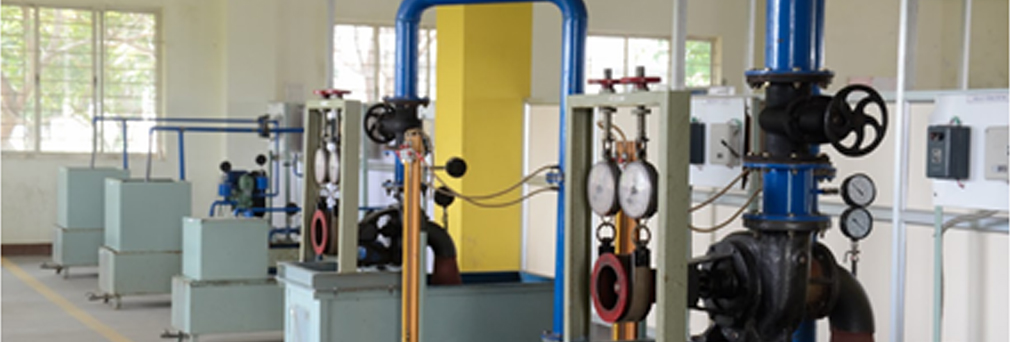
In Fluid Mechanics and Machinery Laboratory, flow through pipes, orifices, mouthpieces, notches etc. are analyzed by the students to measure the velocity of fluid, coefficient of discharge, and coefficient of velocity. The major equipment in this lab are Orifice meter setup, Venturi meter setup, Rota meter setup, Reciprocating and Gear pump setup, Pelton wheel, Francis turbine and Kaplan turbine setup.
STRENGTH OF MATERIALS LABORATORY
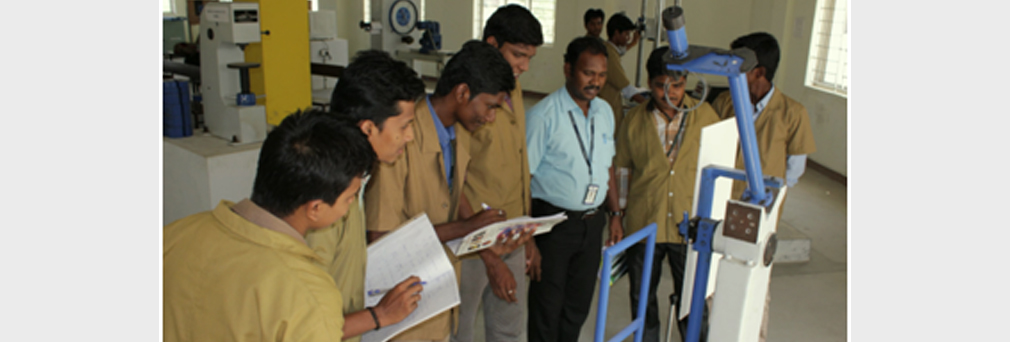
In this lab, students learn to measure the mechanical properties such as tensile strength, compressive strength, torsional strength, hardness, impact load etc of various materials, from metal bars and bricks to concrete cubes. The major equipment in this lab are Impact Testing Machine, Brinell Hardness Testing Machine, Spring Testing Machine for tensile and compressive loads and Muffle Furnace(800˚C).
THERMAL ENGINEERING LABORATORY
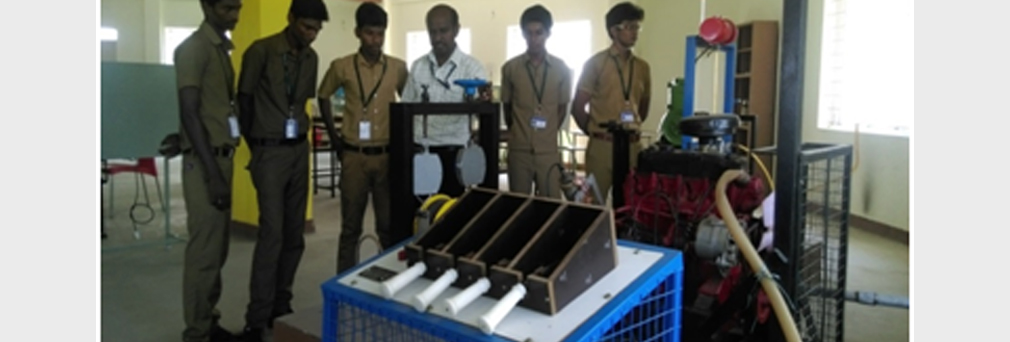
In this lab the performance and emission characteristics of petrol engine, diesel engine and multi-cylinder engine are determined. This lab also deals with the experiments related to different modes of heat transfer i.e. conduction, convection and radiation. The major equipment in this lab are 4-strokeDieselEnginewithmechanical loading, Multi-cylinderPetrolEngine, Natural convection-vertical cylinder apparatus, Compositewall apparatus, Parallel/counterflowheatexchanger apparatus, Refrigerationtest rig and Air-conditioning test rig.
DYNAMICS LABORATORY
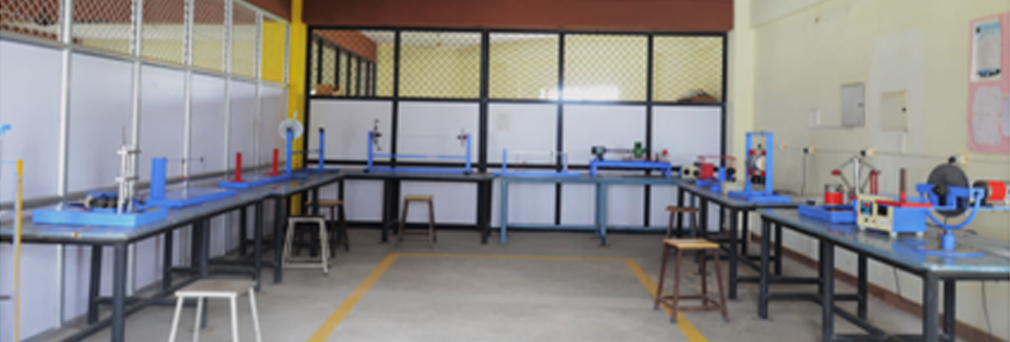
The working principle and functioning of four bar chain mechanism, slider crank mechanism, governor mechanism, gyroscopic mechanism etc., taught to the students theoretically in the class rooms are demonstrated to them in this laboratory. The major equipment’s in this lab are Cam follower setup, Motorised gyro scope, Governor Apparatus-Watt, Porter, Proell and Hartnell governors, Torsional Vibration of single rotor system setup.
METROLOGY AND MEASUREMENT LABORATORY
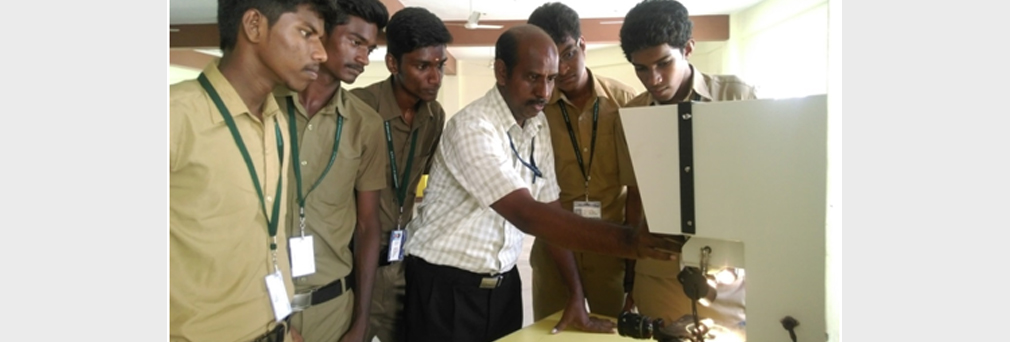
Student learns to use and calibrate measuring instruments and equipment. The main equipment in which students gain hands-on experience include Micrometer, VernierCalipercomparator, profile projector, sine bar, floating carriage micrometer, temperature measurement setup, force measurement setup and torque measurement setup.
MECHATRONICS LABORATORY
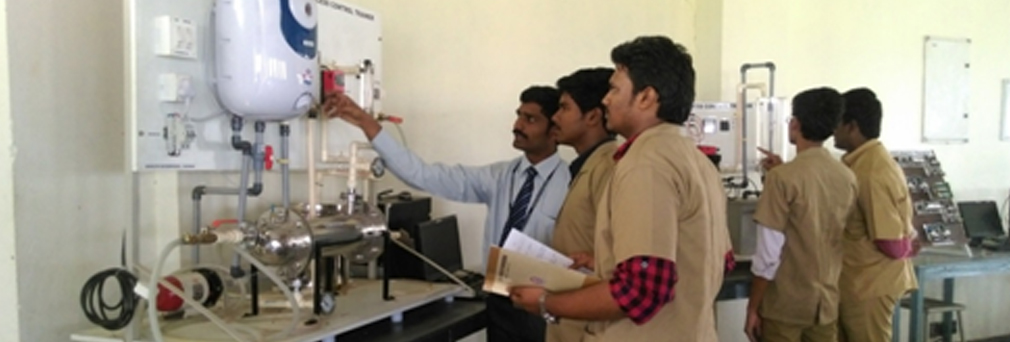
Students learn to design, test and control fluid power circuits using pneumatic and hydraulic trainer kit. Students also learn to model and analyze basic electrical, hydraulic and pneumatic systems using LABVIEW software. Students also learn to program in 8085 Microprocessor and 8051 Microcontroller.
CAD/CAM LABORATORY
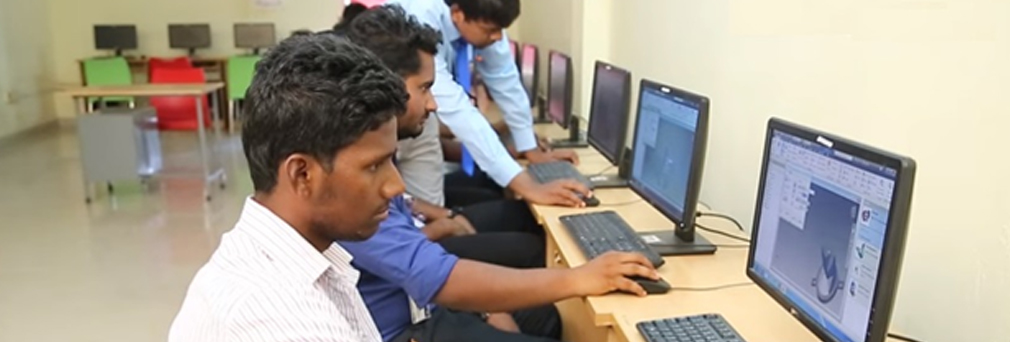
The CAD/CAM laboratory facilitates the students to perform analysis on various parameters through software like AUTOCAD, CREO, and ANSYS etc.
| Hardware | |
|---|---|
| Computer systems | 30 Nos. |
| CNC milling machine | 1 |
| CNC Lathe | 1 |
| Laser Printer | 1 |
| Software | |
| SOLIDWORKS 2014 software | 30 Licenses |
| MASTERCAM CAMSoftware | 15 licenses |
| ANSYS simulation and analysis software | 25 licenses |

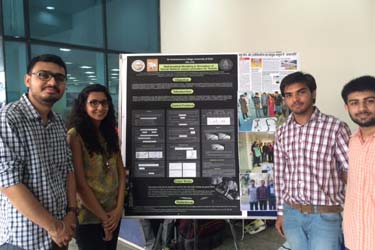
PROFESSIONAL BODY & INDUSTRY INTERFACE
PROFESSIONAL BODY
The Professional Body for Mechanical Engineers ‘SAE Collegiate Club’ was inaugurated on the 27th of April, 2016.
INDUSTRY INTERFACE
The department is highly connected with Industries through which students are exposed to industrial practices. Guest lectures by eminent industrialists, visits to industrial houses and industrial tours enhance the quality of the students. Students are engaged in industry assignments, internships and projects. They undergo in-plant training in various industries such as Hyundai, Ashok Leyland, Ford Motors, Spic, North Chennai Power Plant, Neyveli Lignite Corporation and Jeppiaar Steel Plant.

PLACEMENT
Around 100% of Mechanical Engineering students get placed in various companies like:
• CSS Corp
• ECIT-ECIT
• Tekwizard
• Vijay Diary
• Zaison
• Enchanter
• Sutherland
• Pacesetter
• Eurekaforbes
• Futurenet
• Super Lorry
and have achieved good results in various competitive examinations like GATE, GRE, TOEFEL, CAT etc.

SCOPE
SCOPE FOR HIGHER STUDIES
Higher study options for a B.E Mechanical Engineering graduate include:
• Manufacturing Engineering
• Aerodynamics
• Aerospace Propulsion
• Aerospace Structure
• Thermal Energy and Environmental Engineering
• Refrigeration and Air Conditioning
CAREER SCOPE
Some of the areas where Mechanical Engineers are in demand include:
• Automobile industry
• Aerospace industry
• Steel plants
• Computer industries
• Postal departments
• Banking sector
HOD Profile
Dr.P.Arikaran has more than two decades of teaching experience. He has received Rashtria Gaurav Award from IIFS, New Delhi for meritorious services, outstanding performance and remarkable role in Teaching and Social Service. He is a life member of ISTE, C.Engg, ISNT, ORSI, Indian Welding Society (IWS), National Institution for Quality & Reliability (NIQR), Fellow - Institute of Engineers-India (FIE) and Member of American Society of Mechanical Engineering (ASME). He has published several research articles in National and International Conferences and Journals. His areas of research interest include facility layout design, manufacturing simulation and optimization.
Dr.P.Arikaran, Professor and Head of the Department of Mechanical Engineering He received B.E degree in Mechanical Engineering from Kamarajar University, M.E. degree in Industrial Engineering from Thiyagarajar College of Engineering and Ph.D (Manufacturing Engineering) from Anna University.




